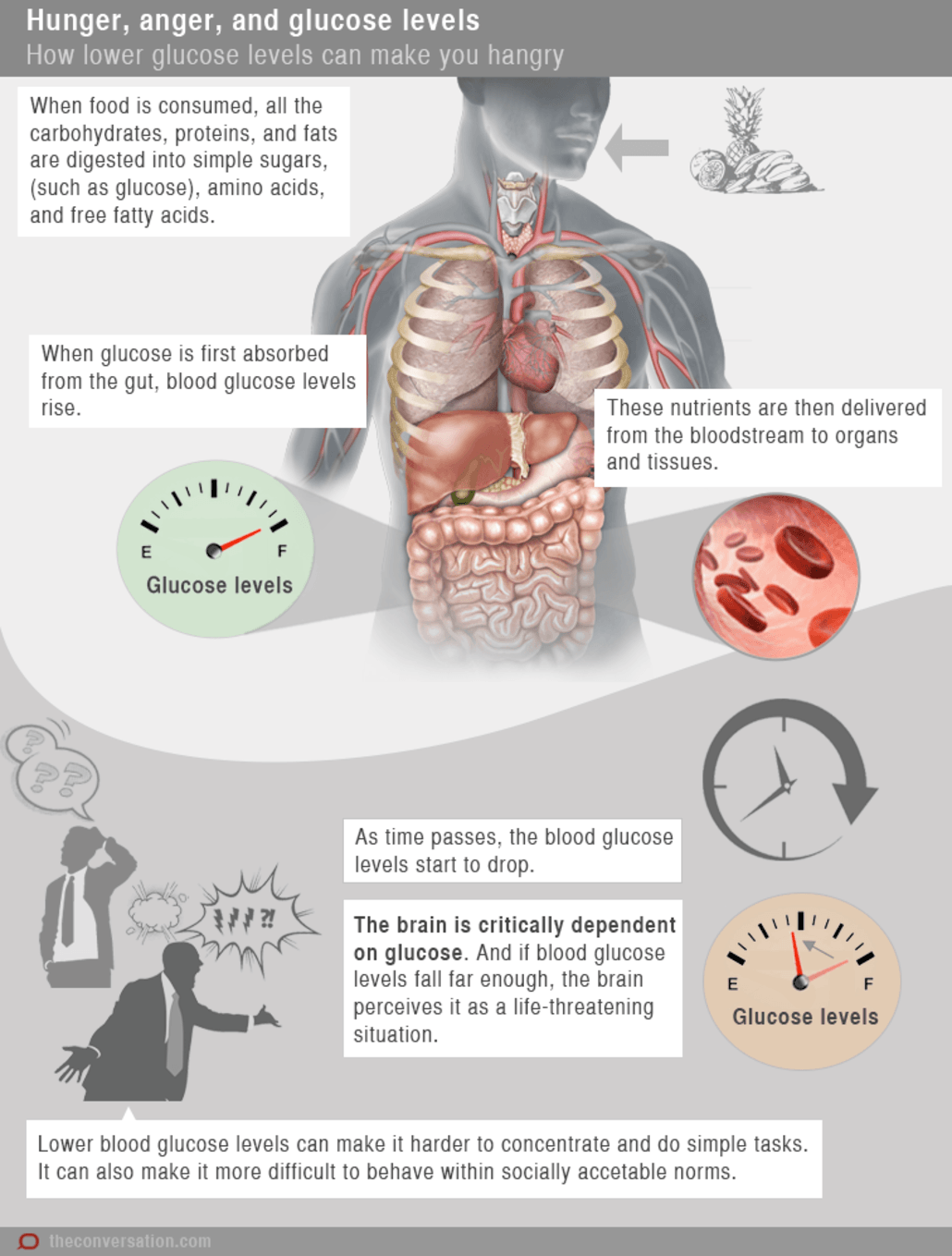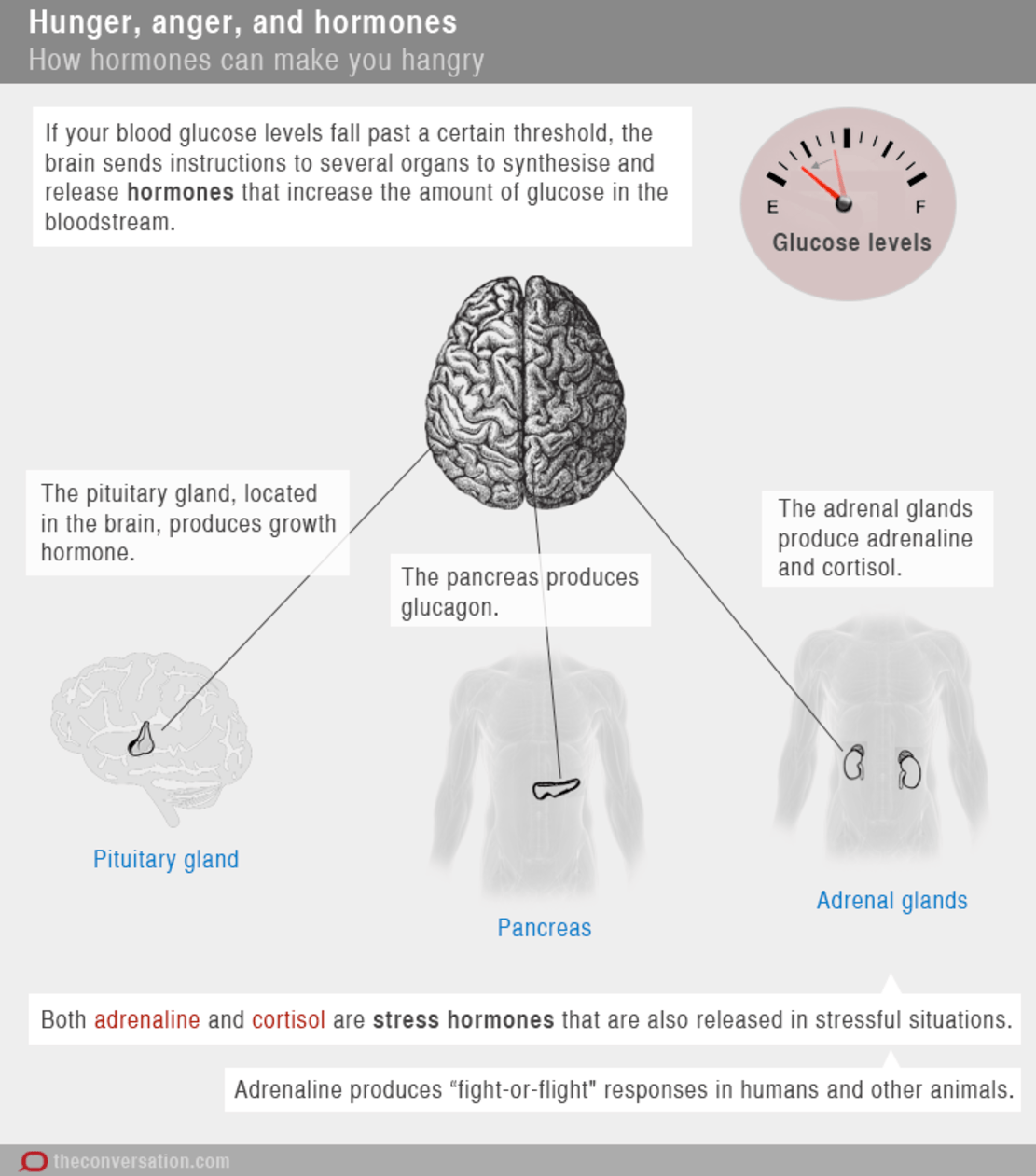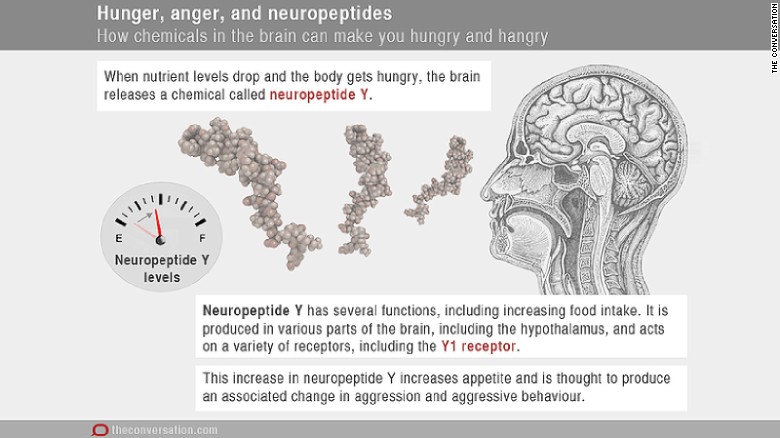
Do you get impatient and lose your temper when you've gone without nourishment for a long time? Then you are suffering from 'hanger', a newly coined term that describes the inexplicable irritation some of us experience when our stomachs are growling. Turns out there is a logical scientific explanation for this often uncontrollable reaction.
Though there are a number of factors that result in hanger, they all stem from low glucose levels in the bloodstream caused by lack of food. While other body organs can function using other nutrients, the brain relies solely on glucose. Thus when the levels start to get low the brain panics and sends instructions to other body organs that release hormones to increase the amount of glucose in the bloodstream. Among them is adrenaline, the same hormone that evokes a "flight or fight" response, when we face a dangerous situation.

To make matters worse, the desperate brain also releases a chemical called neuropeptide. While in this case, it is to send a message to help increase food intake, the same chemical also regulates anger or aggression. The combination of all these creates the perfect storm that results in making people hangry.
Brenda Bustillos, a registered dietitian with the Texas A&M University, says, “In a brain lacking glucose, it’s harder to control signs of anger. Acute bouts of hunger trigger the release of stress hormones which makes it harder to manage our anger and irritability.”

Dr. Amanda Salis, an associate professor at the Boden Institute at the University of Sydney, believes that hanger may also be in the genes passed on from our ancestors. The researcher says, "If our predecessors just stood back and politely let others get to the food before them, there is a good chance that they may not have gotten enough to eat, and they would have died." Hence, she thinks that being aggressive when hungry is just a natural response regardless of whether we live with a shortage or abundance of food.
Fortunately, for most people, this is a transient irritation that is easily resolved with the intake of food. However, for a select few it results in hard to control violent aggression. Dr. Brad Bushman at Ohio State University thinks it may be worth investigating if there is a link between hanger and violence. This according to the researcher may be especially important given the increasing number of people being diagnosed with type 2 diabetes, an affliction that affects how the body handles glucose. Amanda Salis thinks that a better understanding of hanger may also help people struggling with obesity.

However, before we can use this information to our advantage, there is one mystery that still needs to be resolved - How is the feeling created? Salis says that if scientists can identify the exact 'molecular mechanisms' in the brain that triggers the sensations of hunger and hanger, they may be able to come up with a solution to mitigate its negative impact. Unfortunately, until they do find a cure, people suffering from hanger issues will just have to control their emotions by eating lots of yummy (healthy) food!
Resources: huffingtonpost.com, cnn.com